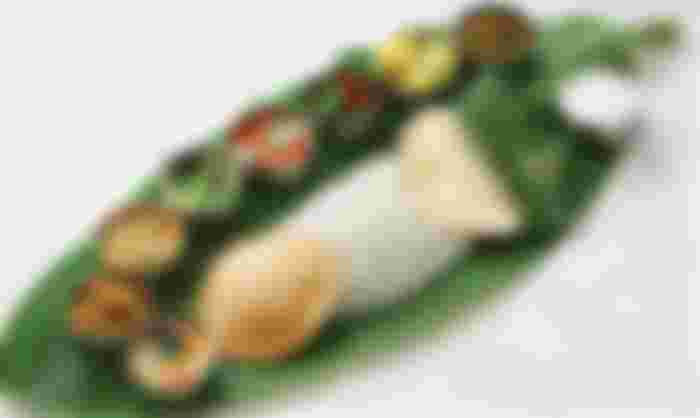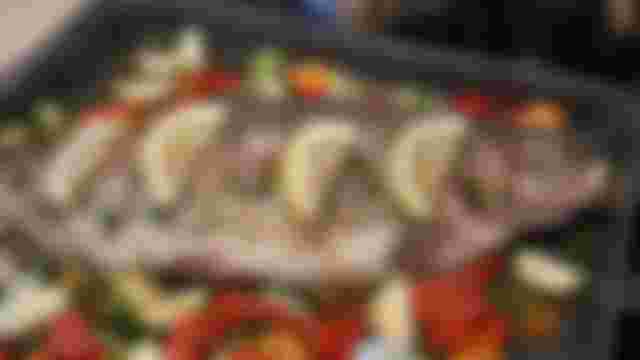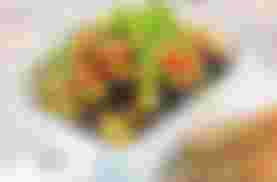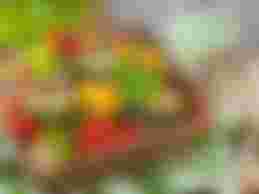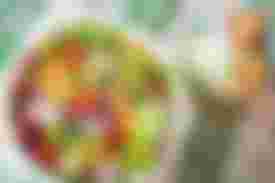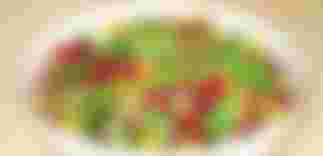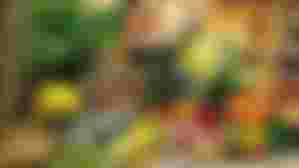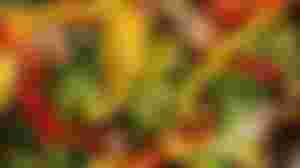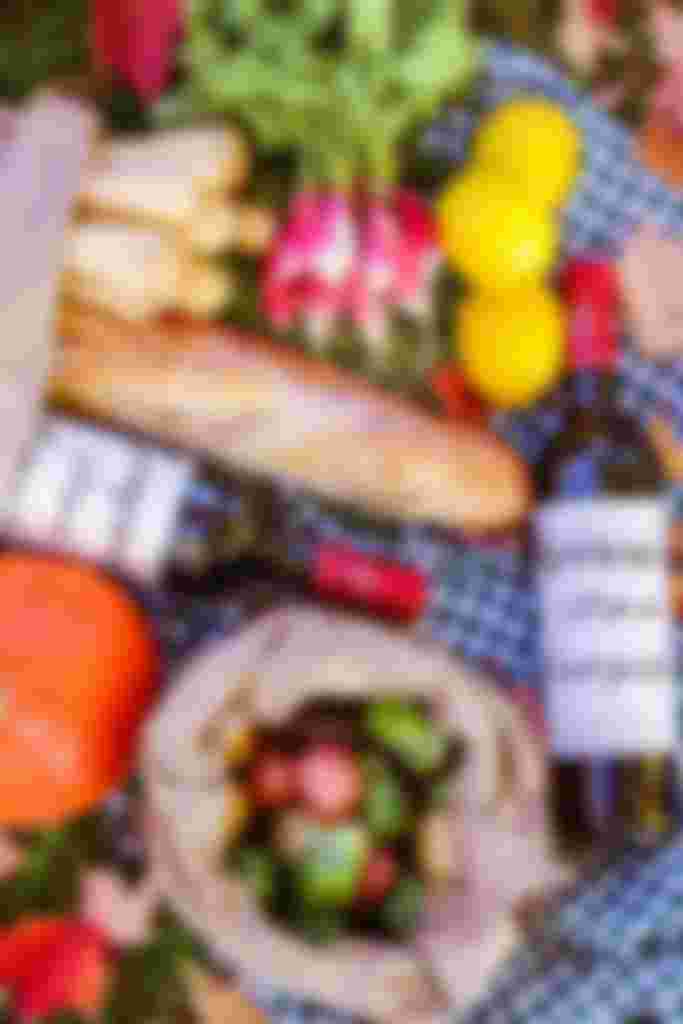Diet and fasting
Christmas fasting is about to begin. Believers, who fast for a longer period of time, already know their rhythm of a diet based on reduced intake of food of animal origin. For them, fasting for weeks is a spiritual preparation with communion and a time of joy that comes with the great holiday, Christmas. Some people just want to fast for a week or two and then take communion. Fasting foods, which are based on fruits, vegetables, grains, seafood, vegetable oil, and nuts, have a good effect on our health. Can we still make a mistake in conducting religious fasting?

Nutritionists advise occasional controlled starvation that cleanses the body and encourages the elimination of harmful substances. Less knowledgeable people identify vegetarianism and fasting as a common diet that renounces meat. However, this is not the case. Fasting is part of a set of spiritual practices that aim to purify the mind and body. Unlike vegetarianism, which is a constant way of changing the diet, fasting is periodic and strictly limited in time. Fasting does not exclude from the menu all foods of animal origin, which is the majority of products that are the main source of protein. Fasting should by no means be understood as diet or starvation. We are talking about a different way of choosing foods that will be on the table, and not about reducing food intake, reducing the number of meals, complete starvation, or excessive intake of permitted foods. Fasting is a religious decision that will exclude certain foods from the menu for a few days or a few weeks. Most religions advocate occasional fasting, and fasting is, in essence, completely on the line of modern scientific knowledge related to healthy eating. However, if you suffer from a disease, it is not out of the question to consult a nutritionist on whether and how to fast. Some medical conditions rule him out.

Fasting and its benefits
The basic recommendation and this is how fasting should be experienced, is a modest amount of food during fasting meals. So, giving up not only the type but also the amount of food consumed, that is, refraining from enjoying often superfluous snacks that bring in extra calories in the daily diet.
The fact that some types of food are given up should not mean that new challenging and tempting dishes must be prepared from the "allowed" foods. Strong and spicy dishes should not be forgotten for a while, and the mild taste of fasting dishes could soon reveal the beauty of not overdoing it in gourmet snacks. Even with a couple of weeks of abstinence, you notice strong and not so pleasant smells of illicit dishes, which only means that your senses are freer, uncaptured to recognize the good. At the same time, this type of food will reduce your appetite.
During fasting, we usually eat larger amounts of fruits and vegetables. These foods are rich in vitamins and minerals which will improve our immunity. This will also have a positive effect on the appearance of the skin, nails, and hair, which are exposed to greater damage in the winter months. By consuming a larger amount of foods that contain cellulose, the digestion process is accelerated and stools are regulated. People who suffer from constipation feel a great benefit from this diet. The good side of a high-fiber diet is the stabilization of blood sugar levels and additional regulation of cholesterol levels, which eliminate indigestible fiber from the intestines with stool.
Sensitive to lactose contained in milk, they may notice that on days when they are fasting, they are less "tormented" by gas and bloating. So, forty days of fasting can have a good effect on the digestive organs.
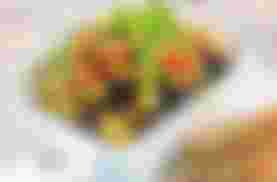
Give preference to sauerkraut
Winter is becoming important on the fasting table, and it is a real treasure trove of vitamins, minerals, and fiber, which are scarce in the modern diet. Jam, jam, cucumbers, pickles, ajvar, compote, boiled tomatoes rich in lycopene, will further strengthen the winter immunity. Winter vegetables like pickles and sauerkraut completely retain the natural properties of vegetables. Columbus sailors survived a long voyage and conquered new worlds by eating sauerkraut, which prevented scurvy, a disease of vitamin C deficiency. Sauerkraut contains isothiocyanates - substances that inhibit the growth of malignant cells. These substances are not found in raw and cooked cabbage. By the way, sauerkraut is rich in vitamins, iron, and fiber. A cup of sauerkraut has only 44 calories. It contains 2.2 grams of protein, 0.4 grams of fat, 6.8 grams of carbohydrates, 8 grams of fiber, a little vitamin A, vitamins B1 and B2, 18 milligrams of vitamin C, 730 milligrams of salt, potassium, calcium, and a little iron. Acidifying cabbage creates the necessary vitamin B12, which is very necessary for our body for all the processes of creating red blood cells and maintaining optimal amounts of iron in the body. By the way, there is vitamin B12 in meat, so sauerkraut is a valuable food for vegans and vegetarians. Sauerkraut is, therefore, extremely healthy, but due to the excess salt that preserves its freshness, it is not recommended for many chronic patients. What to do, wash it with salt just before eating, it will significantly reduce the risk of pressure surges and swelling.
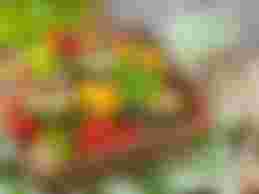
A fasting menu guards the heart
Significantly reduced intake of foods of animal origin in the fasting diet motivates the body to use internal fat reserves so as to reduce the level of triglycerides and cholesterol in the blood.
Traditional fasting menus are also healthy because they involve a reduced intake of saturated fats, which are associated with an increase in bad cholesterol, which is dangerous because it causes the deposition of fat deposits on the walls of blood vessels (atherosclerosis). The fasting menu is therefore especially beneficial for the heart and blood vessels. When the cardiovascular system is less loaded, breathing is accelerated, and thus the lungs are better supplied with oxygen. Sleep is calmer, snoring is reduced, fidgeting is absent because the diaphragm is released from the pressure that a full stomach exerts on it while lying down. Fasting cleanses all organs and cells of harmful substances, which can reduce the symptoms of allergies, migraines, and premenstrual disorders. Redness of the skin or eczema subsides and the face looks fresher and without swelling.
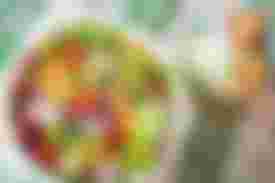
Fish, and we often forget about it, is more common during fasting, it is healthy, it contains proteins, building materials that are especially good for children and the elderly. Marine fish are especially nutritionally valuable.
Hydration of the body is better when eating foods represented in fasting, but it is also good to drink a glass of water more, more precisely, drink plain water, unsweetened tea, or lemonade before you get thirsty. Thirst means that dehydration of the body has already occurred, prevent it.
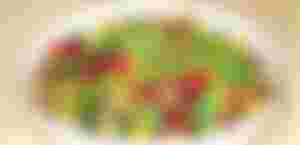
Deficiencies in fasting nutrition
A few tips on the hidden "dangers" of eating during fasting are not superfluous. This way of eating has a potential disadvantage, monotony of meals and repetition of the same dishes. During Lent, most people only exclude dishes that are not allowed, without introducing new ones at the same time, and thus only impoverish the menu. The problem is easy to avoid if you deal with a lot of good fasting recipes. A little imagination during the preparation of meals reveals a multitude of good combinations that further improve the taste of fasting dishes.
At the beginning of this diet, transient short-term reactions of the organism can occur, which are a consequence of cleansing and excretion of toxins. Digestive problems, change in appetite, headache, change in mood…
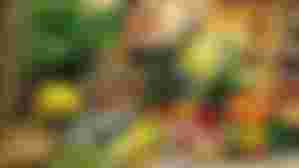
Fasting excludes from the menu foods of animal origin and most of the animal products that are the main source of protein. Some proteins are essential, necessary for the body because it does not create them itself. Fasting on fish and oil will never endanger health, but fasting "on water", which means not eating oil and fish, if it lasts longer than a couple of days, requires the advice of a nutritionist, especially if the health is not completely good.
During fasting, there is a threat of excessive caloric intake because the diet is dominated by carbohydrate-based dishes (dough, pastries, bread, jam, honey, dried fruits, seeds). If you often go for fasting sweets and snacks, or if they even replace meals, the consequence is a constant hunger, irregular diet, and weight gain. Increased need for food can also be a consequence of low blood sugar or a large amount of stomach acid. That is why it is very important to eat for two to two and a half hours to avoid these symptoms.

Winter yes, but which one?

In the industrial, purchased winter store, sulfates are present as preservatives, which in children, as well as adults, prone to asthma, can cause breathing difficulties. A large amount of vinegar in it is not recommended. Purchasing winter pasteurization at high temperatures kills lactobacilli, so there is no useful effect on digestion. First of all, due to preservatives, additives, large amounts of salt, essence, alcoholic vinegar, limuntus… which disturb the balance in our body, many do not perceive winter as a healthy food. And that is true, but we also have numerous recipes for winter without cooking, salting, and pickling with limuntus, with honey, spices, and natural preservatives.
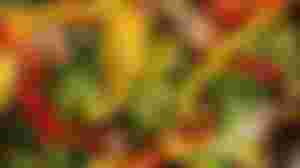
Buying and home-made winter, which has more and more on offer, has advantages if you know who prepared it and you have confidence that the selection of fruits and the method of preparation was good.
Enjoy the benefits of fasting food that should, in the form of fresh salad, boiled vegetables, fresh and cooked or baked fruit, fish… be found in the daily menu. The traditional religious fast on Wednesdays and Fridays is also an example of a good measure in modifying the daily continental diet, characteristic of Serbia. The right measure for good health.

The author
@Andjela99
